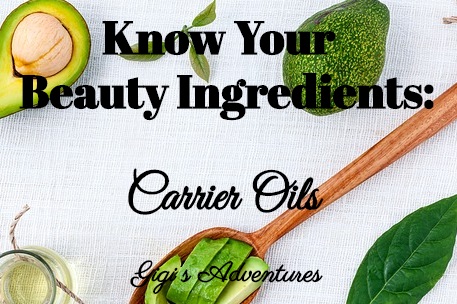Know Your Beauty Ingredients: Carrier Oils (a quick guide!)
Everybody has heard about essential oils at least once, but what about carrier oils? Yeah, I know: say what?!
Even if you have not heard of them, you may be surprised to know that they probably are a staple in your everyday beauty supplies.
So, what are these?
WHAT ARE CARRIER OILS?
Carrier oils are also called “base oils” or even “vegetable oils“, and are used to dilute essential oils; the latters, in fact, cannot be applied directly onto the skin or they will cause quite a few damages.
Carrier oils can have a distinctive smell, but they generally are odorless. They come from the ‘fatty’ part of plants, such as seeds, kernels or nuts.
One of the most famous and used carrier oils is olive oil, which is also one of the few ‘smelly’ ones.
Now that we’ve got the basics down, it’s time to take a look at some of the most commonly used varieties and break their properties down.
Almond Oil (or Sweet Almod Oil)
You have most likely heard about it, and probably even saw it at your local drugstore.
Not only this product is relatively affordable, but also has quite a few benefits; from anti-inflammatory, to immunity-boosting, to anti-hepatoxicity.
Did you know that ancient Chinese, Greek and Persian cultures used this oil to treat dry skin conditions like eczema and psoriasis?
Moreover, almond oil can reduce the appearance of scars and general imperfections, smoothing and rejuvenating your skin.

Avocado Oil
Since we started talking about dry skin, I think it’s only fitting to continue on with the nourishing oils.
Besides the obvious hydrating and replenishing properties, avocado oil can also calm your skin from feeling itchy. Furthermore, it can help protect your skin from ultraviolet radiations and skin damages, relieving inflammation from eczema and psoriasis.
Did you know it can also help healing acne and wounds? You should also give it a try if you whish to cancel sunburns and age signs.

Coconut Oil: Fractionated & Virgin
We often hear about virgin or extra-virgin coconut oil, but the fractionated variety is also pretty common in the carrier oils’ world.
FRACTIONATED COCONUT OIL
Fractionated coconut oil (FCO) has been filtered to contain only the medium chain triglycerides of coconut oil; it’s also tasteless and odorless.
FCO is a liquid absorbed much more quickly than its organic version, is less greasy and has very lightweight texture. It has natural emmolient and moisturizing properties, and will also give your skin a nice healthy glow.
This coconut oil can also give you UV protection, and has natural antibiotic properties as well.
VIRGIN COCONUT OIL
Virgin coconut oil, on the other hand, is a more organic and comprehensive solution.
For instance, this variety is pure moisture and hydration, and helps removing dead skin cells and strengthening the tissues underneath the skin.
Also, virgin coconut oil can help wounds and infections heal faster and control rashes.

Cranberry Seed Oil
This is the richest of oils, resulting in a balanced blend of Omega 3, 6 and 9 fatty acids; it’s also extremely rich in Vitamins E and A.
All these components help nourish the skin, thus helping with conditions like eczema and psoriasi. Also, it will help rejuvenate the skin and is rich in antioxidants.

Grapeseed Oil
Many of the oils we have examined so far have great wound healing properties; grapeseed oil is perfect to treat acne outbreaks.
It’s generally good to even out your skin tone and also make it softer, as well as protecting it from the sun.

Jojoba Oil
One of the best anti-inflammatory oils out there, jojoba oil is also a good choice if you have oily and acne-prone skin since its composition is very similar to the skin’s natural sebum.
Despite that, this oil also reduces the effects of eczema and rosacea; this happens because of the high percentage of Vitamin E and B, that help the skin repair and heal.

Olive Oil
It’s the most famous and probably the most used of all carrier oils, and you most likely already own it.
This oil is rich in antioxidants, anti-inflammatory and anti-bacterial properties, and it’s a very powerful moisturizer.
It’s also one of the more “smelly” ones, so you should be careful when mixing it with other essential oils.

Rose Hip Oil
It’s one of the most expensive alternatives, but it also treats many skin conditions pretty efficiently.
This oil is a natural source of antioxidants, and great to fix acne-prone and dull skin.
Moreover, it does wonders against dry skin and helps moisturizing it, as well as keeping it toned and fading various scars.

Sunflower Oil
Another affordable and effecient choice! Sunflower oil is rich in antioxidants and amazing to fight acne and blemishes.
The emmolient properties will help your skin retain the moisture, while its anti-inflammatory properties will soothe redness and itching.



